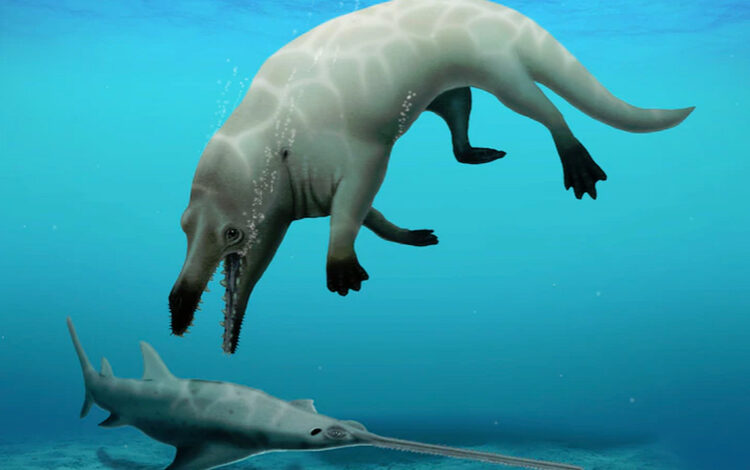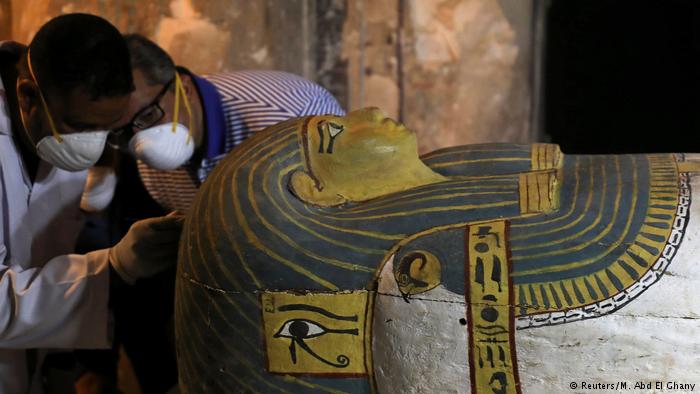
A team of Egyptian paleontologists have named a new species of amphibious whale after its fossil was discovered by an Egyptian expedition, Professor of Paleontology at Mansoura University Hesham Sallam announced.
“Paleontologists discovered the fossils in 2008 during an expedition in Egypt’s Fayoum Depression that is famous for sea life fossils dating back to the Eocene Epoch about 56 to 33.9 million years ago,” he added.
Sallam’s and his fellow researches realized after four years of comparison with other whale species that they were looking at a completely new species.
The species was named Phiomicetus anubis, after Anubis, the Egyptian god of death, and could likely be the oldest whale in Africa.
The research team further discovered that the whale was likely long ago a giant predator of the sea, clocking in at 3 meters long and 600 kg and equipped with jaws capable of eating crocodile and small mammals.
Fayoum is 80 kilometers from Wadi El-Hitan (Valley of the Whales), a UNESCO World Heritage site that is home to hundreds of fossils that display the evolution of whales from land to ocean-based mammals.
__
IMAGE: An illustration of the semiaquatic “god of death” whale. Image credit: Illustration by Robert W. Boessenecker




